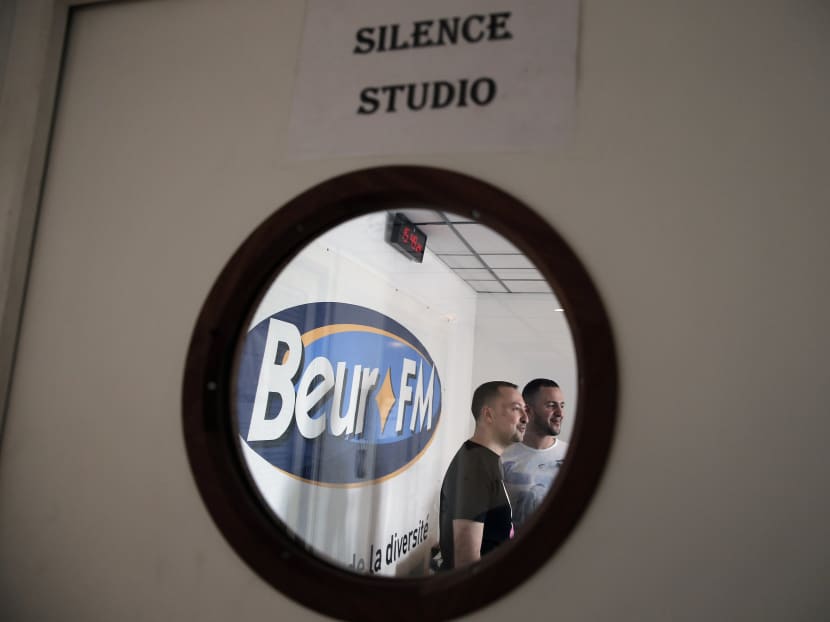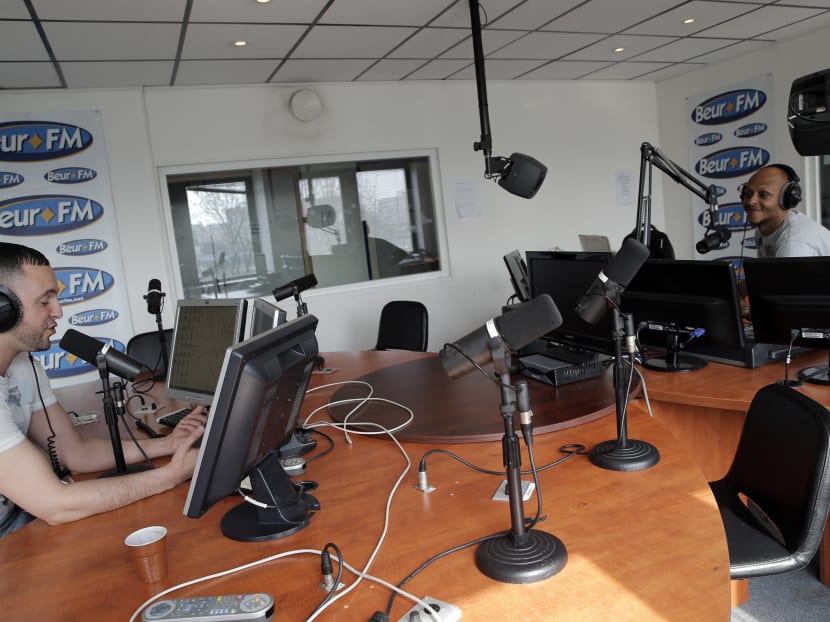French radio station takes on new role after Paris attacks
CHARENTON-LE-PONT (France) — It’s called “Beur FM” — after a slang term for Arab people — and has become the voice of France’s Islamic community in the wake of the Charlie Hebdo attacks.


CHARENTON-LE-PONT (France) — It’s called “Beur FM” — after a slang term for Arab people — and has become the voice of France’s Islamic community in the wake of the Charlie Hebdo attacks.
The radio station gives daily doses of talk, music and news, normally catering to the Muslim population. But since terror struck the heart of Paris in January, Beur FM has become a staple for listeners of all walks of life who are hungry for answers about the violence — and how to reconcile alienated immigrants with mainstream society.
On air since 1992, the station has achieved widespread prominence only in recent months as the French turn to it for insights into what could have motivated three Frenchmen of immigrant roots to kill in the name of religion.
The station hasn’t clocked a sharp rise in listeners — the current audience stands at about 400,000 listeners a day — but saw a marked rise in retweets, Facebook likes and other social media attention following the attacks, according to marketing director Nabil Bougouss. It’s also drawing in a broader range of fans, including Jews and other non-Muslims, he said.
Charlie Hebdo had received threats over the years for publishing caricatures of the Prophet Muhammed. But few expected the spasm of violence that erupted in its offices Jan 7, when two brothers of Algerian origin burst in shouting “Allahu Akbar” and gunned down 11 people including the editor-in-chief.
The 12 full-time staff of Beur FM — based in a glass building in the eastern suburbs of Paris — don’t pretend to have the answers. But they say they are at least allowing people to ask questions and speak freely on their chat shows.
Muslim callers often grapple with thorny questions of identity — seeking ways to express revulsion at Charlie Hebdo’s mockery of Islam without being seen as a Muslim fanatic.
“People still call us and say `I am not Charlie ... As a Muslim it grated on me, even if I am absolutely not a fundamentalist. Can I discuss it with you without being accused of fundamentalism?’” said comedian Yassine Belattar, who hosts a morning talk show.
The Beur FM programme “Islam Now” offers a Muslim take on often controversial topics that change with each broadcast. When it started, imam Abdelali Mamoun’s show was only broadcast during the Ramadan holy month. It proved so popular that it’s now on the air daily.
There are about 4.7 million Muslims in France, or about 7.5 per cent of the population, according to a Pew Research Center study released in January. Most of them are of North African descent.
Mr Mamoun, an imam from the Val-de-Marne region southeast of Paris, is willing to address any issue, explaining that there is “no shame in religion, so no shame to talk about whatever subject”. Recent themes include incest and sexual abstention.
“Listeners who tune in to Beur FM have a lack of signposts, of theological references. And this is what we are trying to fill — this lack of reference points,” Mr Mamoun said. “They ask certain questions, namely about how to reconcile their everyday life with their religious practice.”
Other shows broach politics. One listener, a project manager identified as Nordine, called in to a recent talk show about shrinking voter turnout and complained about President Francois Hollande.
“The problem is that the president must represent everyone,” he said. “But the problem is that we don’t feel it’s the case. Truly not at all.”
After the January attacks, many other French media turned to Beur FM for answers to questions about an immigrant community that is routinely ignored.
“The role of a kind of ‘super expert’ was accorded to us when the events happened,” said Mr Abdelkrim Branine, the station’s editor in chief. “The majority do not understand much, they are looking for answers, which is a good thing. The problem is that we wait for a tragedy to happen.” AP






